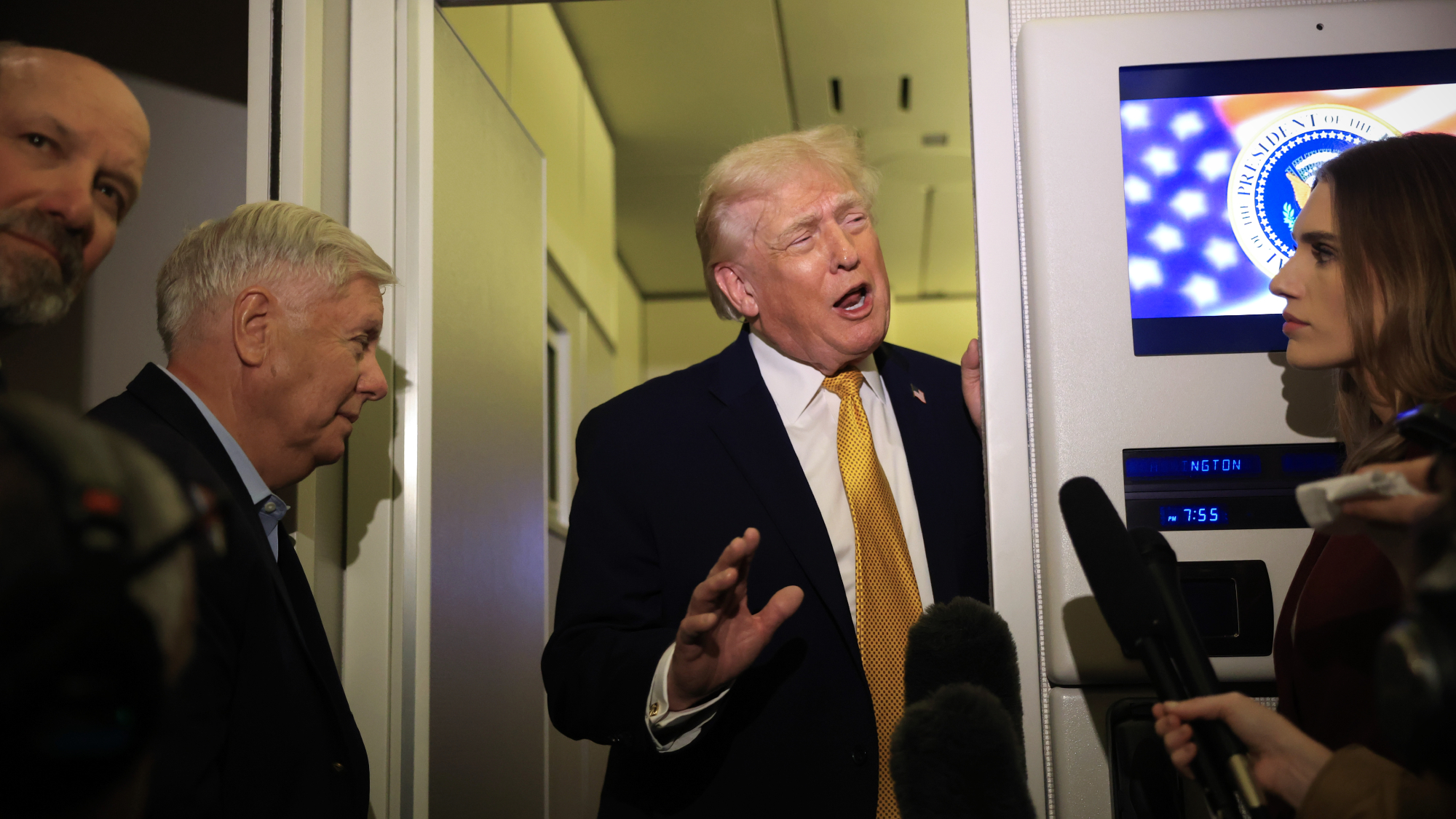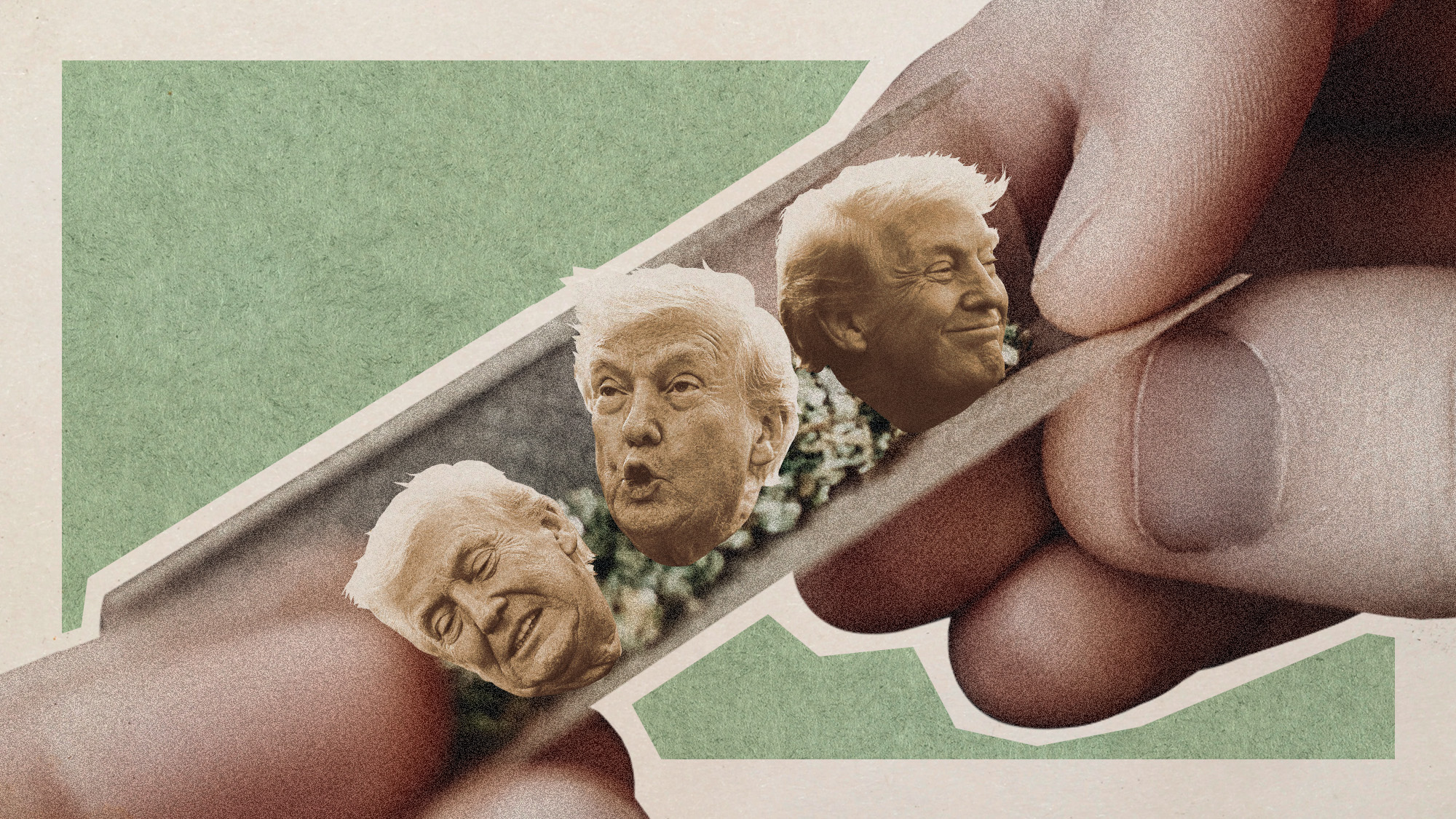NHS medicine shortage: what medicines are affected?
Pharmacists warn of delays and price increases for commonly prescribed drugs

A free daily email with the biggest news stories of the day – and the best features from TheWeek.com
You are now subscribed
Your newsletter sign-up was successful
Pharmacists have warned that many common medicines are becoming increasingly hard to supply, leaving patients facing delays and “vastly increased prices”.
Widely used painkillers, antidepressants and blood pressure drugs are among 80 medical products that have been put on a “price concessions” list by the Pharmaceutical Services Negotiating Committee, which supplies NHS pharmacies - up from 35 in October.
The list features drugs for which the Department of Health has agreed to pay over the odds in order to prevent shortages.
The Week
Escape your echo chamber. Get the facts behind the news, plus analysis from multiple perspectives.

Sign up for The Week's Free Newsletters
From our morning news briefing to a weekly Good News Newsletter, get the best of The Week delivered directly to your inbox.
From our morning news briefing to a weekly Good News Newsletter, get the best of The Week delivered directly to your inbox.
Ash Soni, president of the Royal Pharmaceutical Society, gave the example of anti-inflammatory naproxen, which he said was “completely out of stock” and could only be purchased at a cost of £6.49 a box - a £2 hike on the price last agreed by the NHS, reports the BBC.
The Independent notes that a “similar spike in 2017” saw the number of concessions reach a high of 91 and ultimately cost the NHS an extra £315m.
As the current crisis grows, some pharmacists are sending patients back to their GPs to “ask for a different medicine or dosage”, while others are “giving patients some of their prescription and sending them away with an IOU note for the rest”, adds the BBC.
Other medicines on the list include the 40mg dosage of furosemide, used to treat high blood pressure and other cardiovascular problems, which is the 23rd most commonly prescribed drug in England.
A free daily email with the biggest news stories of the day – and the best features from TheWeek.com
There are also supply problems for the 20mg and 40mg doses of fluoxetine, used to treat depression, and the 20mg and 40mg doses of propranolol, a common beta-blocker used to treatment of anxiety.
Topiramate, an anticonvulsant that helps control seizures brought on by epilepsy, has been granted a price concession in both its 50mg and 100mg forms, as has the 1mg, 2mg, 3mg and 4mg doses of antipsychotic drug risperidone.
Gareth Jones of the National Pharmacy Association told the BBC that uncertainty over Brexit appears to be a “significant factor” in the shortages. He advised that patients should “order medicines in advance” to “give the pharmacist more time to deal with it”.
Martin Sawer, executive director of the Healthcare Distribution Association, suggested that stockpiling by manufacturers could be affecting supplies.
“Some businesses could be speculating on Brexit. That’s the nature of the market,” he said.
The Daily Express reports that “increased global demand, cost of raw materials, new regulatory requirements” have also been cited as factors for driving up costs, along with fluctuations in exchange rates.
And an NHS push to drive down the prices that it agrees for drugs has “made the UK less attractive to manufacturers”, the newspaper adds.
Meanwhile, former Liberal Democrat MP Sandra Gidley argues that blaming Brexit for dwindling supplies is a red herring, telling the BBC Radio 4’s Today programme that shortages “have been a problem for some years”.
“The situation with Brexit is that the Government have recognised that there could be potential supply problems and they have been asking manufacturers to keep in a buffer stock so that if there are freight problems, trouble with customs, patients will still get their drugs,” Gidley said.
“Unfortunately, what’s been happening on social media over Christmas is that people have been putting two and two together and assuming that this is because of Brexit.”
-
 6 of the world’s most accessible destinations
6 of the world’s most accessible destinationsThe Week Recommends Experience all of Berlin, Singapore and Sydney
-
 How the FCC’s ‘equal time’ rule works
How the FCC’s ‘equal time’ rule worksIn the Spotlight The law is at the heart of the Colbert-CBS conflict
-
 What is the endgame in the DHS shutdown?
What is the endgame in the DHS shutdown?Today’s Big Question Democrats want to rein in ICE’s immigration crackdown
-
 How corrupt is the UK?
How corrupt is the UK?The Explainer Decline in standards ‘risks becoming a defining feature of our political culture’ as Britain falls to lowest ever score on global index
-
 ‘One day fentanyl will come back — and there will be little anyone can do’
‘One day fentanyl will come back — and there will be little anyone can do’Instant Opinion Opinion, comment and editorials of the day
-
 The high street: Britain’s next political battleground?
The high street: Britain’s next political battleground?In the Spotlight Mass closure of shops and influx of organised crime are fuelling voter anger, and offer an opening for Reform UK
-
 Trump says US ‘in charge’ of Venezuela after Maduro grab
Trump says US ‘in charge’ of Venezuela after Maduro grabSpeed Read The American president claims the US will ‘run’ Venezuela for an unspecified amount of time, contradicting a statement from Secretary of State Marco Rubio
-
 Why is Trump’s alleged strike on Venezuela shrouded in so much secrecy?
Why is Trump’s alleged strike on Venezuela shrouded in so much secrecy?TODAY'S BIG QUESTION Trump’s comments have raised more questions than answers about what his administration is doing in the Southern Hemisphere
-
 Biggest political break-ups and make-ups of 2025
Biggest political break-ups and make-ups of 2025The Explainer From Trump and Musk to the UK and the EU, Christmas wouldn’t be Christmas without a round-up of the year’s relationship drama
-
 Why, really, is Trump going after Venezuela?
Why, really, is Trump going after Venezuela?Talking Points It might be oil, rare minerals or Putin
-
 Why does Trump want to reclassify marijuana?
Why does Trump want to reclassify marijuana?Today's Big Question Nearly two-thirds of Americans want legalization